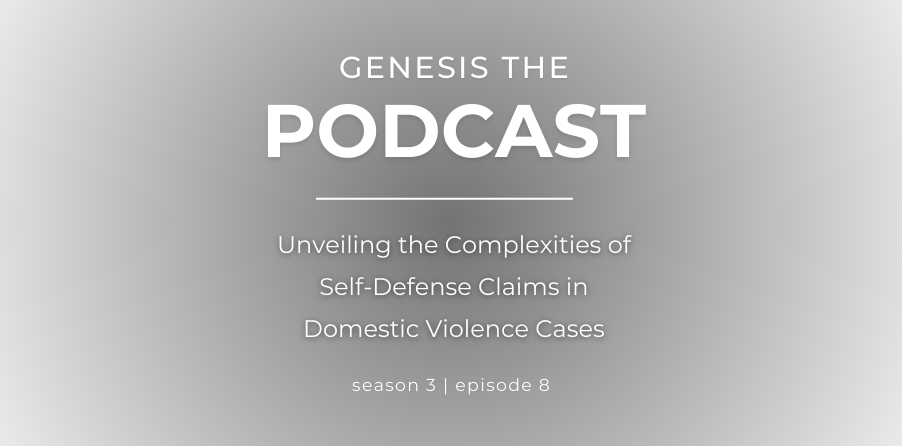Unveiling the Complexities of Self-Defense Claims in Domestic Violence Cases

Season 3, Episode 8
In the latest episode of our podcast, we took an in-depth look into the intricacies of self-defense claims in domestic violence cases. Kelsey McKay, a seasoned attorney and founder of Respond Against Violence, joined us to provide expert insights into the complexities involved in such cases.
Self-defense claims in domestic violence cases often present a unique set of challenges – victims are frequently caught in a tangled web of systemic biases, lack of proper training, and strategic isolation tactics employed by their abusers. This often leads to visible injuries being the sole determining factor in assault cases.
A real-life case that was discussed during the podcast clearly demonstrated how biases and improper training can result in grave injustices, especially for women of color, and the uphill battle victims face when advocating for themselves. (You can listen to Ty’esha’s story beginning at 20:33.)
One of the key topics discussed was the issue of self-defense laws. It was pointed out that these laws often fail to account for the fear and isolation experienced by survivors of abuse. This failure can lead to confusion in investigations and prosecutions. Additionally, perpetrators of abuse often use self-defense as a defense tactic, which disproportionately affects women charged with crimes against their abusers.
The conversation also touched on the societal preference for dead women over women who fight back, highlighting the disproportionate impact on vulnerable populations. The stacked odds against women who experience domestic violence and the need for society to care about the victims were also emphasized. (Click here to read the article we referenced during our conversation.)
As the podcast episode progressed, the focus shifted to the dynamics of perpetrators and victims in cases of domestic violence. We examined the challenges victims face in advocating for themselves during investigations, along with the lack of protocols in place to provide them with support or legal representation.
Finally, the podcast episode emphasized the urgent need for change in societal understanding and language concerning self-defense laws. Unfortunately there is a double standard that exists for women in using self-defense in their own homes, which requires a shift in understanding and language to recognize these actions as survival behaviors rather than defensive ones. This change is necessary to prevent women from being incarcerated for defending themselves against their abusers. This can be achieved through educating investigators and prosecutors on the dynamics of abuse.
In conclusion, this podcast episode highlighted the urgent need for change in societal understanding and language concerning self-defense laws. It is a must-listen for anyone interested in understanding the complexities of the criminal legal system’s response to domestic violence.
To listen to this episode of Genesis the Podcast, click here.
